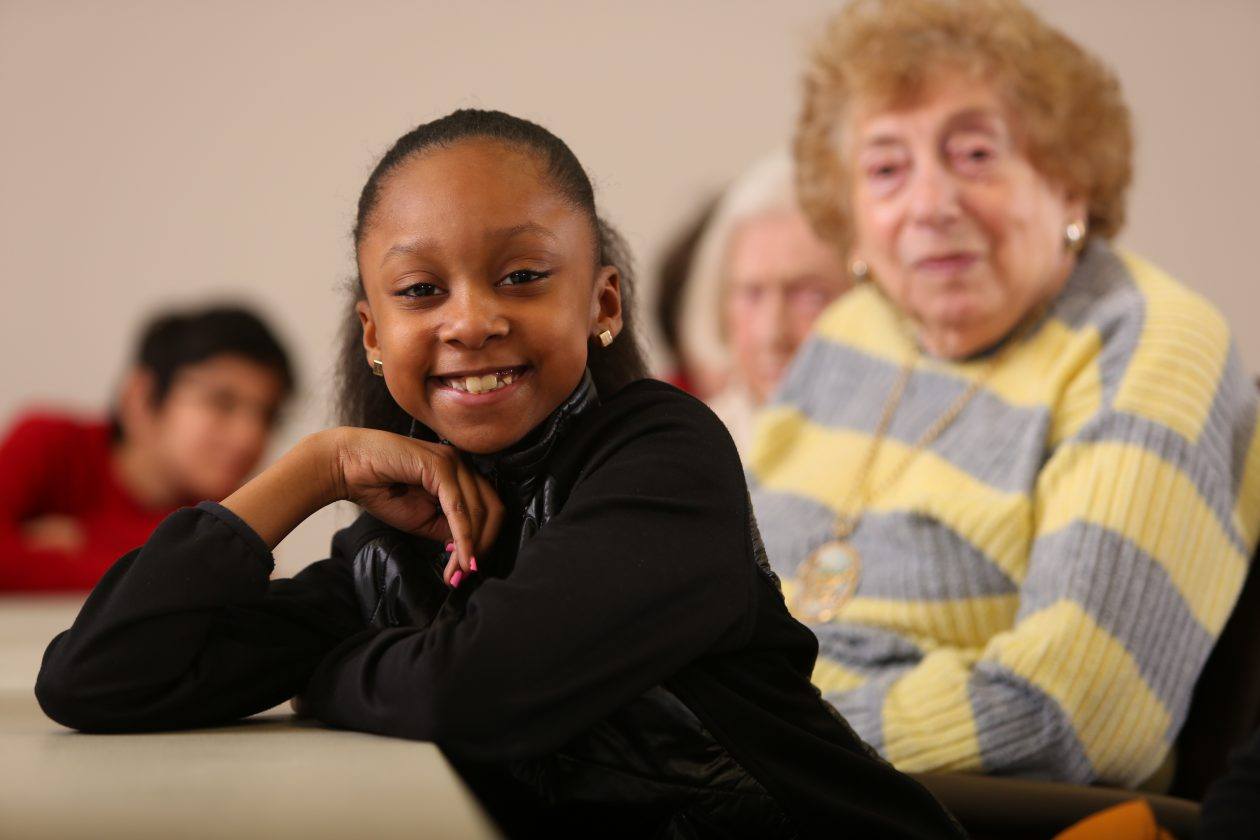When a loved one is diagnosed with Alzheimer’s disease or another form of dementia, the news can be devastating for families. At Senior Lifestyle, we understand that for families with young children, the impact of a dementia diagnosis can be especially difficult to manage. A child’s reaction to the disease affecting a beloved family member may depend on several factors, including the age of the child, the relationship between the child and the loved one with dementia, and where the person with dementia lives (at home, with family, or in a senior community). Providing Alzheimer’s education for kids will make the journey easier for all family members.
It’s vitally important to talk to kids about what is happening when a loved one is diagnosed with dementia. Speaking openly and honestly about the disease helps to alleviate some of the fear a child may feel about the disease. For younger children, simply stating that “Grandma has an illness that makes her forgetful” may be enough to de-mystify the illness. Older children and teens may be able to understand a more complex description of dementia; they may also need help in understanding their emotional reaction to the person with dementia. Teens may be embarrassed and upset by the behavior changes they see in their loved one and may want to limit time spent with their loved one. It is essential to respect this choice and not to force the teen to spend time with the family member, as this could make the situation worse. Allowing children and teens to talk about their feelings is also helpful in managing the effects of the disease on younger family members.
The Alzheimer’s Association shares that providing Alzheimer’s education for kids who live with a person suffering from dementia can help them to better understand the changes they see in their family member. Focusing on connections and remembering what the person with dementia can still do also helps children adapt to the changes in the household. It’s important for children to understand that while their loved one may be changing, there are still things they can do together. Some activities for children and family members with dementia include:
- Putting together a scrapbook with photos and mementos
- Watching old TV shows together
- Singing or listening to favorite songs
- Coloring or drawing pictures
- Planting or weeding a garden
An Alzheimer’s diagnosis is frightening not only for the person diagnosed, but for the entire family as well. The disease brings changes, but these changes can be managed with the right support and resources. Senior Lifestyle’s Memory Care philosophy, embrace, focuses on maintaining connections with tangible reminders of favorite pastimes and interests, sparking memories and providing a sense of purpose for the person with dementia. We foster independence and communication for our residents and their families to make their interactions as enjoyable and memorable as possible. We invite you to learn more about our Memory care programs at www.seniorlifestyle.com.

